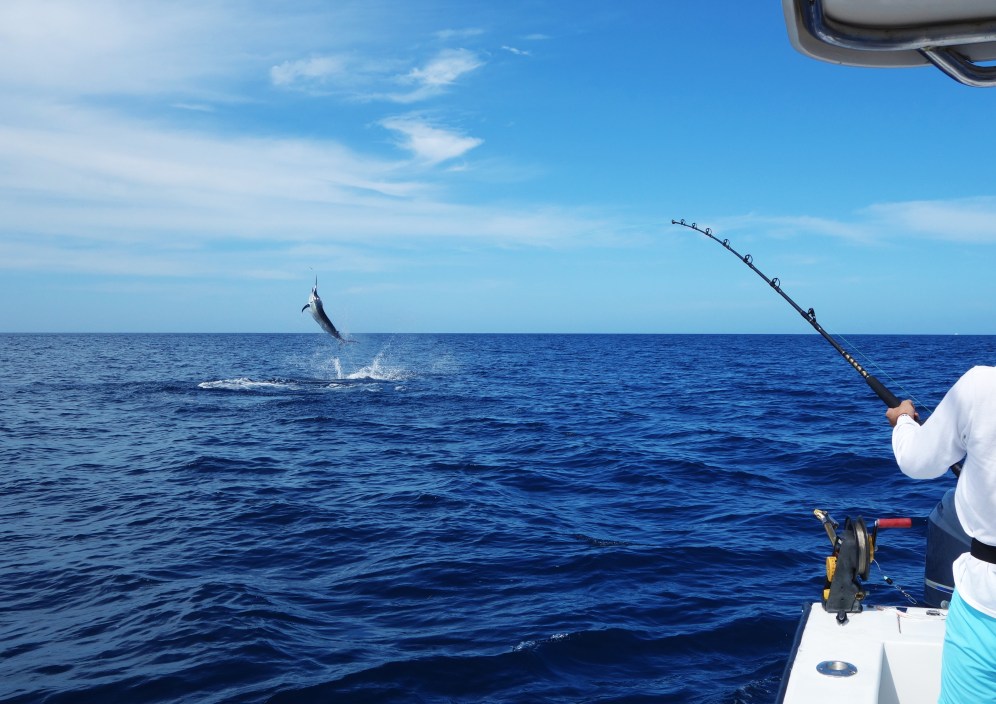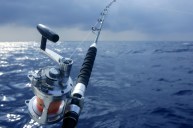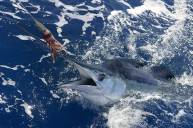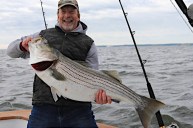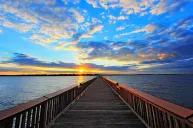Fishing in Florida is a bucket list trip for many anglers. The variety of species to target, the gorgeous scenery, and the ample opportunities come together to make Florida the unofficial fishing capital of the world.
There are many factors to consider when planning a fishing trip in Florida. There's Florida licensing, deciding which type of fish that you want to catch, what part of the state to visit, and more. So, whether you want to target giant inland bass, inshore tuna, deep sea swordfish, or snook from the beach, there are numerous ways to spend a vacation fishing in Florida waters.
Types of Fish to Pursue
The first thing to determine when planning a fishing trip to Florida is what type of fish to pursue. All of the other details depend on this. For freshwater fishing, two popular species to pursue are largemouth bass and peacock bass. Both fish are tons of fun to catch. They hit hard and put up a great fight.
For saltwater fishing, the charter possibilities in Florida are nearly endless. If you're looking for really big fish, there are deep sea fishing charters who will take you out offshore fishing for swordfish, sailfish, and marlin. Most trips for these species are a full day fishing.
For some people, catching a shark is a dream, so many charters also offer trips just for sharks. Some charters offer sharks at a lower rate if their base of operations is close to where they bite. Shark species caught in Florida are usually blacktips, nurse sharks, bull sharks, hammerheads and makos. Offshore fishing is an adventure of a lifetime, with challenge, excitement, and spectacular views.
For inshore fishing and other trips under 30 miles from shore, most fishing boat charters put clients on whatever species has been biting the most lately. That could include king mackerel, wahoo, mahi mahi (dolphinfish), cobia, tuna, redfish, sea trout, snook, red snapper, or amberjack.
Not all charters are created equal, so read the online reviews for charters before booking. Most charter crew members will clean the days catch, so there's no need to worry about bringing gear for cleaning fish. You might want to ask if there is an extra charge for fish cleaning when booking.
Also, a 20 percent tip if often expected. Some companies include the tip cost with the cost of the overall trip. Make sure you check ahead of time.
Florida Fishing Licenses
Before you even think about wetting a line, you need to purchase a Florida fishing license. Florida sells both freshwater and saltwater licenses, so you'll need to know which type of fishing you'll be doing. Buy a license that fits that style of fishing. The fees are the same for both licenses, but there are different tiers you can choose from.
Unfortunately, the state only offers a combo license for both freshwater and saltwater to residents, so if you are traveling from out of state and want to tackle both, you'll have to purchase both licenses separately.
Florida Fish and Wildlife makes it easy to purchase licenses on their website GoOutdoorsFlorida.com. You can also buy over-the-counter licenses once you get there or by calling 888-FISH-FLORIDA.
Also, keep in mind some sportfishing charter boat outfitters can take care of licenses for you. Be sure to ask when you book.
Fishing gear
If you're hiring a charter boat, you generally don't need to worry about fishing gear. The charters supply their own most of the time. You'll likely be using a spinning reel or trolling rod setups most of the time.
Most charters use live bait. Some of them will have your party help catch said bait on the way to your real fishing spot, so just be aware of that. If you just want to get right to the main action, you might want to ask your charter what they normally do.
Most charter boats are set up for a variety of fishing situations. You'll need downriggers if the fish are especially deep. Outriggers are helpful for covering more water when the fish are scattered. More and more pro charters are utilizing kites when conditions call for a very specific presentation and a very specific depth. For artificial lures, you'll likely be using spoons, jigs, or inline spinnerbaits
For freshwater fishing, you're likely going to want medium to heavy action rods and baitcasting reels. Even the freshwater fish in Florida can get quite large.
If you're fishing a lake with heavy weed cover like Okeechobee, you'll also want the heavier gear to wrestle those big largemouths out of the cover.
When it comes to lures for big Florida bass, jigs in crawfish colors, soft jerkbaits, big topwaters, and spinnerbaits are go-to staples.
Where to Fly in
Most anglers to head to Florida are likely going to fly in because it's the quickest way to get there, especially if you live on the other side of the country.
If you're planning to fish the Gulf of Mexico, a good central location is Tampa. There are plenty of charters based out of Tampa and up and down the coast that will take you out into the Gulf. A more northerly option is Tallahassee International Airport. Even though this is the capital of Florida we're talking about, the airport is small and modest. It's about a 40-mile drive to the coast from there.
If you're looking to fish the Florida Keys, the Everglades or Lake Okeechobee, you'll likely be faced with the choice of Miami International or Fort Lauderdale. Normally, it's cheaper to fly into Fort Lauderdale, but Miami is closer to the fishing action in the Keys.
Another popular freshwater hotspot is Lake Kissimmee. Many people who go here might first look at flying into Orlando International. We'd advise against that if you want to avoid tourists, since this is where everyone flies in to for Walt Disney World.
Instead, consider Orlando Melbourne, which is a smaller airport that generally costs less to fly into, and it has better reviews for service.
Towns to Stay
Getting away from the tourists in Florida is easier said than done, especially in the popular fishing areas. If you're fishing Lake Okeechobee, check out the smaller communities of Lakeport or Clewiston. These areas have fewer lodging options, but they're also usually cheaper and quieter than Okeechobee.
For the Lake Kissimmee area, options on hotels are fewer right near the lake. You'll probably be looking at staying in the Lake Wales area or renting a cabin or cottage somewhere closer. There are also campgrounds in the area, so taking or renting an RV is an option. Lake Kissimmee State Park is one popular camping location.
If you're fishing the Keys, it's again hard to avoid tourists. You could consider staying in Homestead, Florida, about a 20-mile drive from Key Largo. It'll save you a little bit of money if you don't mind driving.
Two other popular fishing destinations in the Keys are Marathon and Islamorada. There is no shortage of fishing charters in either.
In the north Florida panhandle, check out some of the small towns like Destin and Seaside between Pensacola and Tallahassee for plenty of charters, but fewer tourists than other coastal areas of Florida.
One of the difficult things about the Tampa or Miami areas is finding places not overrun with people already. South of Tampa check out the Venice or Gasparilla Island areas where there are plenty of fishing guides willing to take you out for a half or full day of fishing, but slightly less tourists.
The eastern coast poses a real challenge to get away from people, but check out Vero Beach between Melbourne and Palm Beach as an option near Miami.
As an added tip, when finding a place to stay, don't be afraid to look beyond hotels and check rental sites like Airbnb, especially if you're bringing a group of friends. The initial price of renting a home for a week can seem pricey at first, but if you split it four or more ways, you might find you'll be able to extend the length of your stay.
READ MORE: How to Match Yourself With the Perfect International Fishing Trip
